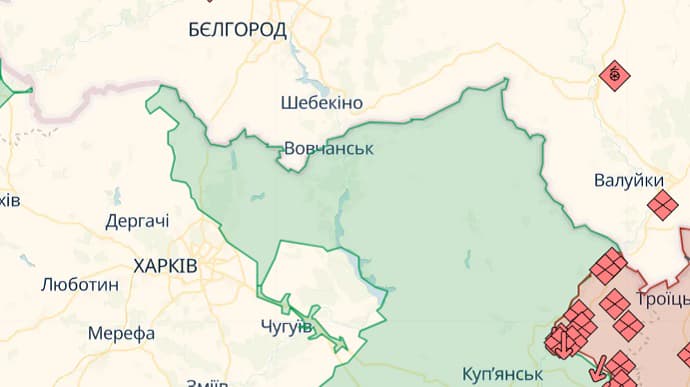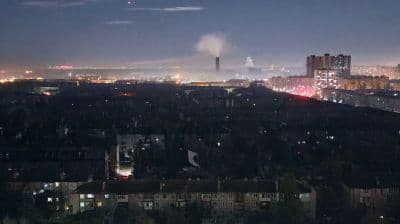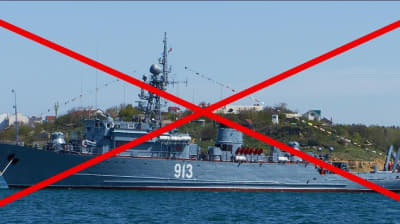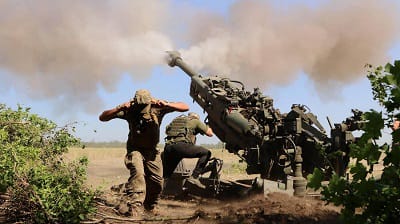Russia wants to create 15-kilometre "buffer zone" in Kharkiv Oblast – ISW

Russia has reiterated its calls for a large-scale offensive in Kharkiv Oblast to create a "buffer zone" with Russia’s Belgorod Oblast.
Source: Institute for the Study of War (ISW)
Details: Military analysts noted that this is being done despite the Russian military's likely inability to conduct an operation to seize significant territory in Kharkiv Oblast in the near future.
Dmitry Peskov, Spokesperson for the Russian president, said on 9 January that Russian troops would do everything possible to prevent attacks on Belgorod Oblast by Ukraine.
Russian sources, using Peskov's comment, called on Russian troops to create a "buffer zone" up to 15 kilometres deep in Kharkiv Oblast to push Ukrainian MLRS and artillery away from the border with Belgorod Oblast.
Russian ultranationalists have regularly called for a similar operation in the summer of 2023 amid widespread discontent with cross-border raids by pro-Ukrainian forces in Belgorod Oblast. ISW believes that a Russian invasion 15 kilometres deep and several hundred kilometres wide would be a large-scale operation that would require a grouping of forces much larger and much better equipped than the troops currently concentrated along the entire border with Ukraine, least of all in Belgorod Oblast.
ISW has already assessed that Russian forces may intensify their efforts to capture Kupiansk in Kharkiv Oblast in the coming weeks, and that the Russian grouping on the Kupiansk front appears better equipped to conduct an intensive offensive than elsewhere in Ukraine or along the border.
The Russian military is currently only capable of conducting tactical operations in Kharkiv Oblast. And they will serve to distract Ukrainian forces from possible Russian operational efforts on the Kupiansk front.
To quote the ISW’s Key Takeaways on 9 January:
- A Ukrainian public opinion survey on Ukrainian attitudes towards the Ukrainian government and military indicates that Ukrainian society overwhelmingly supports Ukraine’s military and its leadership while experiencing tensions typical in a society fighting an existential defensive war.
- A new independent poll from the University of Chicago's National Opinion Research Center (NORC) found that Russian President Vladimir Putin maintains strong domestic support for his regime and his war in Ukraine, despite relatively poor economic conditions and living standards in Russia.
- Russian ultranationalist vitriolic responses to gender integration in the Ukrainian military highlight Russia's ongoing shift towards a cultural-ideological worldview that seeks to restore rigid and traditional gender roles and exposes gaps between Russia and Ukraine's respective abilities to mobilise their own societies.
- Ukrainian Air Force Spokesperson Colonel Yurii Ihnat reported that Ukraine has a shortage of anti-aircraft guided missiles after several recent large Russian missile and drone strikes against Ukraine.
- Russian sources continue to complain about persistent command and communication problems that degrade Russian combat capability in east (left) bank Kherson Oblast.
- Russian sources are reviving longstanding calls for a large-scale Russian offensive operation in Kharkiv Oblast to create a "buffer zone" with Belgorod Oblast despite the Russian military’s likely inability to conduct an operation to seize significant territory in Kharkiv Oblast in the near term.
- Recent Kremlin and Russian media rhetoric aimed at threatening Moldova likely continues to embolden pro-Russian separatist leaders in Moldova to attempt to sow political instability and division in Moldova.
- Bloomberg reported that officials from Ukraine, the Group of Seven (G7) countries, India, Türkiye, Saudi Arabia, and other unspecified countries held a meeting in Riyadh, Saudi Arabia on 16 December to build support for Ukrainian conditions to negotiate with Russia.
- Russian forces made confirmed advances southwest of Donetsk City, and positional engagements continued along the entire frontline.
- The Russian military is reportedly abusing Serbian nationals whom Russian officials have recruited to serve in Russian formations in Ukraine.
- Russian occupation officials continue the systematic oppression of residents of occupied Crimea using law enforcement and administrative means.
Support UP or become our patron!







